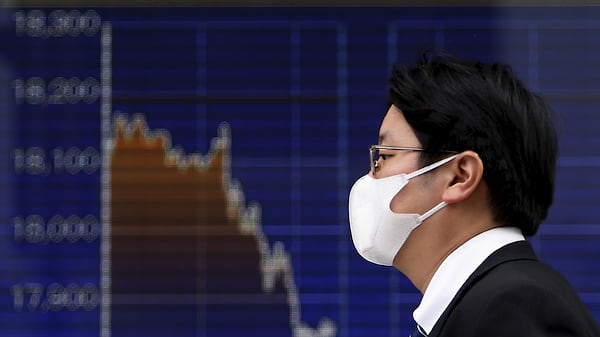China's coronavirus could slow global economy and reduce demand for oil and food

Chinese authorities said that on April 12, another 23,342 people fell ill in Shanghai, of which only 994 showed symptoms. According to Johns Hopkins University, 574,519 new cases of coronavirus have been detected in China over the past 28 days. According to Nomura, currently China has partially or completely closed 45 cities, which account for 26.4% of the population or 40.3% of GDP.
China is fighting the zero-tolerance coronavirus, so it has imposed strict quarantine in Shanghai, where a covid outbreak has been reported, leading to the closure of many factories in the country's economic center.
S&P estimates that China's oil consumption will fall by 650,000 barrels per day in March and by 400,000 barrels per day in April. Against the background of falling business activity, the freight of dry cargo and containers decreased, as production at many plants was stopped. German auto parts maker Bosch and Taiwanese Pegatron Corp, which assembles an iPhone for Apple Inc, on Tuesday announced shutdowns at plants in China due to quarantine restrictions, which pose risks not only to the Chinese economy but also to global supply chains.
Authorities estimate that the daily rate of infection will remain high in the coming days, as Shanghai has yet to cope with an outbreak of coronavirus - the largest since 2019, when the code was detected in Wuhan province. The National Health Commission of the People's Republic of China stated that “the epidemic is in a phase of rapid spread, and there is no effective control of social spread yet. Therefore, in the coming days the number of infected will remain high.
Amid a possible tightening of restrictions, the US State Department has ordered civil servants who do not work in emergencies to leave the consulate in Shanghai.
In March 2022, China reduced soybean imports by 18.2% compared to March 2021 to 6.353 million tons due to delayed supplies from Brazil and low domestic demand. During the 1st quarter, 20.28 million tons of soybeans were imported, which is 4.2% less than 21.16 million tons purchased in 1 sq. Km. 2021.
At the same time, declining profitability in China's domestic market has reduced demand for soybeans from processing industries, especially among feed producers. Since the beginning of the year, pig prices in the country have fallen sharply, reducing their breeding margins and, as a result, the demand for soybean meal, one of the main feeds produced from soybeans.


